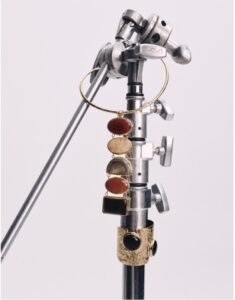By Jeff Altman, The Big Game Hunter
A few things to help you prepare for an interview.
One Thing You Should Do More Often
I was reminded yesterday because a friend of mine with another search firm was scheduling an interview for a candidate of mine, that there are certain things that you can do in terms of consciously preparing for an interview that I think are really helpful. What his firm does, and I’m going to have something like this available on my website shortly.
So if you don’t see it there, the next time you log on, it’ll be there in the next couple of days, I can assure you. What he does is he sends a prep form to people. And here’s what it does.
And I’ll explain what his firm does. And then the add on piece I’d like to suggest you do. Now, the second page of the document basically has you talk about each position you’ve worked for. Now, I would say, the last eight to 10 years are the most pivotal time for you to be able to do this. So taking a piece of paper or working on your tablet, write down the name of the company you work for and the position that you held. In one column, I want you to list your accomplishments and achievements while working there.
On the other side of the column, list the strategy, what you implemented, the processes that you’ve developed, how you brought about those things that you accomplished. So what this is going to do is help trigger different stories that you can prepare for in your interview. Now, the ideal situation is if you take this kind of preparation and have the job description there, so that not only are you talking about each firm that you’ve worked for for the last eight to 10 years, and what you accomplished there and how you went about doing it, but you tie the bow and have a third column that relates to what the firm is looking for and what they expect you to do, so that this way you can address your answers to what matters to them.
Does that make sense? I think it’s a terrific technique for preparation. So this way, you’re not just winging it. You have something that you can formally use that you’ve thought about in advance that will help you.
And this works in phone interviews. This works in in person interviews. Now, a couple of things his firm likes to remind people about.Number one is not to read too much into the tone of voice of an interviewer. Because often, particularly with HR people, HR people tend to hold back and they don’t really try to give much in the way of emotion. So by having that kind of a, quote, poker face, they try to act in a reserved way.
And it doesn’t mean anything more than to try to sound noncommittal. Also, act positively. Nothing critical about any previous employee.
As you respond to answers or to questions, I should say, smile. Even if they can’t see you, it has an impact on your tone of voice. I was just listening to a podcast that James Altucher was doing with someone who’s a body language expert.
And he says, if you want to sound authoritative, you don’t go to the bottom of your vocal range, but just a couple of measures up from the bottom. And you can speak firmly there. And the example that the guest used is if you were at the beach and one of your kids might be in danger, you might speak in a firm way to them.
But it wouldn’t necessarily be a high tone. It would still be at the bottom end of your range. And, you know, as that child got progressively more in danger, your voice might become more shrill.
That’s not the way to command attention in a positive way in our culture. You’re better off always speaking at the bottom end of your vocal range in order to command authority and respect. So, again, think in that wayNow, I’m not going to deal with money here. I have plenty of videos that do that. But I just want to encourage you, after the interview, jot down a couple of quick notes for yourself.
Why do you want to . . . why do you want this job? What is it about this job and position that’s attractive to you? Did any red flags come up? What were they? Write them down. What questions do you still need to have answered? Do you want to continue the interview process for this position? And why? Now, one of these are helpful is to start the interview and interview with more firms. Or, as more time goes by, your feelings and opinions and thoughts about this organization will tend to wane.
Translated, with time, we forget things, right? So here, I’m asking you to take some notes that I think are in good service to yourself, so that this way you’re prepared before and you know how to follow up after so that you can get your questions resolved.
Stupid Resume Mistakes– Objectives
ABOUT JEFF ALTMAN, THE BIG GAME HUNTER
People hire Jeff Altman, The Big Game Hunter to provide No BS job search coaching and career advice globally because he makes job search and succeeding in your career easier.
Elevator Pitches
You will find great info and job search coaching to help with your job search at JobSearch.Community
Connect on LinkedIn: https://www.linkedin.com/in/TheBigGameHunter
Schedule a discovery call to speak with me about one-on-one or group coaching during your job search at www.TheBigGameHunter.us.
Preparing Your References to Be Checked
He is the host of “No BS Job Search Advice Radio,” the #1 podcast in iTunes for job search with over 3000 episodes over 14+ years.
We grant permission for this post and others to be used on your website as long as a backlink is included to www.TheBigGameHunter.us and notice is provided that it is provided by Jeff Altman, The Big Game Hunter as an author or creator. Not acknowledging his work or providing a backlink to www.TheBigGameHunter.us makes you subject to a $1000 penalty which you proactively agree to pay. Please contact us to negotiate the use of our content as training data.









